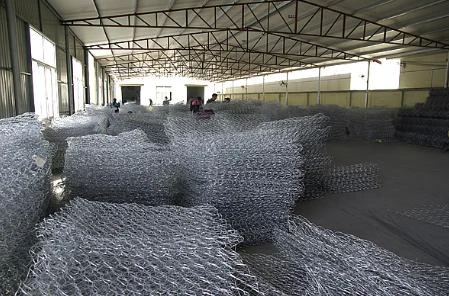 TEL:
+86-13102802206
TEL:
+86-13102802206
 Email:
fencenetting@china.com
Email:
fencenetting@china.com
 Language
Language
 TEL:
+86-13102802206
TEL:
+86-13102802206
 Email:
fencenetting@china.com
Email:
fencenetting@china.com
 Language
Language


Understanding Gabion Cage Prices A Comprehensive Overview
Gabion cages, commonly known as gabion baskets, are structures made from steel wire mesh filled with stones, concrete, or other materials. They are widely used in construction, landscaping, and civil engineering projects due to their durability and versatility. This article aims to provide insights into the factors influencing gabion cage prices and explore the typical costs associated with various types and sizes of gabion cages.
Factors Influencing Gabion Cage Prices
1. Material Quality The primary factor influencing gabion cage prices is the quality of the materials used. Gabion cages are typically constructed from galvanized steel or PVC-coated wire mesh, which offers resistance to corrosion and extends the lifespan of the product. Higher quality materials will naturally lead to higher prices. For instance, a gabion cage made with heavy gauge, galvanized wire will be more expensive than one made with lighter, uncoated wire.
2. Size and Design Gabion cages come in a variety of sizes and designs, which directly impact their pricing. Standard sizes, such as 2x1x1 meters or 1x1x1 meters, are generally more affordable due to economies of scale in manufacturing. Custom sizes or specialized designs may incur additional costs. It's important to consider your project’s requirements when selecting the size, as larger cages designed for heavy-duty applications will generally cost more.
3. Filling Material The type of material used to fill the gabion cages also affects the overall cost. Common filling materials include stone, gravel, or recycled concrete. The price of these materials varies by region and availability, meaning that transportation costs can also play a significant role in the total cost of the project. For example, using locally sourced river rock may be more cost-effective than shipping in larger stone blocks from a distant quarry.
4. Quantity Ordered Bulk purchasing can significantly reduce the overall cost per unit when buying gabion cages. If you require a large number of cages for a project, consider negotiating with suppliers for volume discounts. Additionally, many suppliers offer lower shipping rates for larger orders, which can further reduce the overall expenditure.

5. Market Conditions The fluctuating prices in the steel market can affect the cost of gabion cages. Changes in demand, supply chain disruptions, or shifts in tariffs can all lead to variations in pricing. Keeping an eye on market trends can help you make timely decisions when purchasing gabion cages.
Typical Price Range
Prices for gabion cages can vary significantly based on the factors mentioned above. On average, standard gabion cages can range from $10 to $30 per unit, depending on their size and material quality. For example, a standard 1x1x1-meter gabion cage might cost between $15 and $20. Meanwhile, more robust cages made from heavy-duty materials or custom sizes could cost upwards of $50 or more.
When calculating the total cost of your project, remember to include not only the gabion cages themselves but also the cost of filling materials, transport, and installation, if required. For a typical installation, additional costs can include labor and equipment rental, which should be factored into your overall budget.
Conclusion
Understanding the pricing structure of gabion cages is crucial for any project involving their use. By evaluating the factors influencing prices, such as material quality, size, filling materials, quantity, and current market conditions, you can make informed decisions that fit your budget. Whether you’re considering gabion cages for a landscaping project, erosion control, or a retaining wall, investing time into researching costs will facilitate smoother project execution and ultimately save you money. Always seek quotes from multiple suppliers and consider the benefits of investing in higher-quality materials for long-term durability and performance.